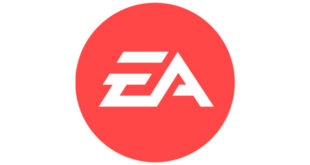Koei Tecmo is one of the biggest video game companies in Japan, and the games it creates have been popular with players around the world for decades. It is the studio behind classics like Ninja Gaiden, Dynasty Warriors, Fatal Frame and Nobunaga’s Ambition, as well as other more recent RPG hits like Nioh, Wo Long: Fallen Dynasty and Atelier Ryza.
Yosuke Hayashi is both an executive vice president at Koei Tecmo and a long-established game developer and producer. Eventually joining the company after becoming a fan of their games as a child playing Famicom, he has since been involved in the development of some of their biggest and most respected franchises, and made his way up the ranks within Team Ninja after the departure of its former head Tomonobu Itagaki.
Hayashi’s role soon expanded beyond just one team at the firm, and he became part of Koei Tecmo’s board of directors. Earlier this year, he took time out of his busy schedule to talk to MCV/DEVELOP about the company, its ongoing challenges, and what it hopes to accomplish next.
Note: This interviewee’s responses have been translated from Japanese, and have been rearranged and edited for clarity.
Koei Tecmo launched a new slogan – ‘level up your happiness’ – in 2023. What exactly does that mean?
Yosuke Hayashi: It is a reflection of what we can provide to our audiences, our customers, our players. We want to help improve their happiness with our games but also with everything else around them. Level Up is a common term used in video games and as a gaming company we thought it was appropriate.
Since the release of Nioh, Team Ninja has become more of an action RPG developer, rather than just an action developer. As a fan – do you think we’re ever going to see Ninja Gaiden and Ryu Hayabusa again?
Yosuke Hayashi: Ninja Gaiden is definitely a valuable IP to not just Koei Tecmo but to Team Ninja as well. We just want to make sure to have something solid first.

You’ve been launching a lot of new intellectual properties of late. Was there a meeting where this was something you decided to drive towards as a company, or has it just sort of happened?
Yosuke Hayashi: What is specific to Koei Tecmo is that we want to assess the skills and strengths we already have and build from that. Offering up a new IP is a good way for us to challenge ourselves and our skills, and that is the direction we’re looking forward to, but we care about our old IP as well.
Team Ninja’s games are probably the most high profile from Koei Tecmo. How much do you think the company relies on Team Ninja’s output?
Yosuke Hayashi: Each team and brand has its own strengths. Team Ninja games are popular amongst the western audience, this is probably why the team is perceived as a high profile. But, actually, some other teams are very popular in Asia.
Why do you think games like Nioh, Wo Long and Rise of the Ronin are resonating with people lately?
Yosuke Hayashi: We focus on the strengths of the studios. Team Ninja are aware of their strengths. This is probably why their games are popular. They have an expertise in Asian culture and use it very well in their games. This is probably why their titles are popular with western audiences.
Ni-Oh was PlayStation exclusive on consoles, but Wo Long has seen great success as a multiplatform title. What is the reasoning behind going back to a Sony exclusivity deal for Rise of the Ronin?
Yosuke Hayashi: Rise of the Ronin is our biggest title to date. We wanted to have a proper release and for that, we decided to work with someone. Sony was here to help with the challenge we had when we worked on Nioh, it was natural to work with them for this new challenge that is Ronin.
Wo Long comes from our Nioh experience, so it was not a completely new challenge. Ronin has a bigger scale, and bigger challenges, so this is why partnering with Sony was a good choice.

Koei Tecmo is also no stranger to licensed game partnerships, between its anime games and its Zelda and Fire Emblem games made in collaboration with Nintendo. How do those games come about? Did Koei Tecmo have to pitch?
Yosuke Hayashi: Something very unique about Koei Tecmo is that each of the managers from studios or teams can approach IP holders with ideas or suggestions and pitch them.
Koei Tecmo is a very developer focused company, where a lot of managers come from the developer side, and we use that strength when pitching our games.
Several companies around the world are starting to leverage ‘generative AI’ in the development of their titles. What is your perspective on that at Koei Tecmo?
Yosuke Hayashi: Koei Tecmo is looking at that topic. We are examining new ways to use it to make the dev work easier. We haven’t used it yet, but hopefully we will in the future.
Koei Tecmo is a global company, but it retains a Japanese identity in the games it produces. Is that something that has become easier or harder to maintain over recent years?
Yosuke Hayashi: It is hard to say. A lot of people [in the company] come from various backgrounds and countries. We make games based on Japanese history, and this is probably how we retain our identity. We sense that, today, people are more open and interested in Japanese culture and history.
Speaking of a Japanese identity in games, Nobunaga’s Ambition came out last year from Kou Shibusawa. How does Koei Tecmo keep a ‘history simulation’ game that has been around since the NES/Famicom fresh?
Yosuke Hayashi: The latest Nobunaga’s Ambition title incorporated recent technologies in the game to improve the officers and offer a more realistic experience. Incorporating new technology helps continue to keep the series fresh while we remain faithful to the series identity.
How does that differ from the approach the company takes with something like the Musou or Dynasty Warriors series?
Yosuke Hayashi: For the Musou series, or Dynasty Warriors series, as the technology is evolving, we want to express more options and do more things. We’re looking for the right timing or evolution.
Remasters are more popular than ever. Would Koei Tecmo be keen to go back to something more obscure these days like Ar Tonelico, or are the teams not working on new intellectual properties and licensed games more interested in doing sequels to more established series, like with Atelier Sophie 2?
Yosuke Hayashi: Gust has a huge potential. There’s potential to grow. We want to get more users familiar with the team first. After that, there will be opportunities to remaster games. We want more people to be aware of our titles, and working on new IP is the best way to achieve that.
Has the success of Atelier Ryza expanded Koei Tecmo’s approach to game development?
Yosuke Hayashi: The Atelier series was focused on the Japanese audience first. Ryza had the potential – and helped us to realise the potential – to reach more people in the world. For Ryza 3, we targeted a more global launch.

Koei Tecmo seems to be steadily growing and thriving, as opposed to the shrinking, consolidation and redundancies taking place in much of the industry at the minute. To what do you attribute the company’s apparent ability to weather the storms that the industry often faces?
Yosuke Hayashi: Koei Tecmo is a very developer centric company. Our value as a company is in the way we develop games here. We use the strengths and skills of people already here and see what we can do. We build skills, which helps us maintain a stable way to develop games.
Do you think Koei Tecmo is risk-averse?
Yosuke Hayashi: We can’t exactly say that. We work on and focus on our strengths to make games that the audience can be looking forward to and be happy about. We make sure to use our strengths the best we can.
What’s been the highlight of your time at Koei Tecmo?
Yosuke Hayashi: The most memorable would be the release day of Nioh. It was a game we’d spent a long time working on and one that was going to show our strengths. Release day was like judgement day. The positive reception from the audience showed that we had worked hard and that we had made the best choices.
What’s been the low point?
Yosuke Hayashi: When working in this industry there are a lot of hard times and I try my best to forget about them. [Laughs.]
How do you see the way games are consumed changing over the next few years? What are you doing to remain competitive?
Yosuke Hayashi: This will be a combination of my previous answers. We are a developer focused company, where each team has its own strengths, and each brand can create the games that they’re best at.
We create games that players can enjoy and look forward to. The games markets are constantly changing and we will continue to create games for these audiences.

 MCV/DEVELOP News, events, research and jobs from the games industry
MCV/DEVELOP News, events, research and jobs from the games industry




